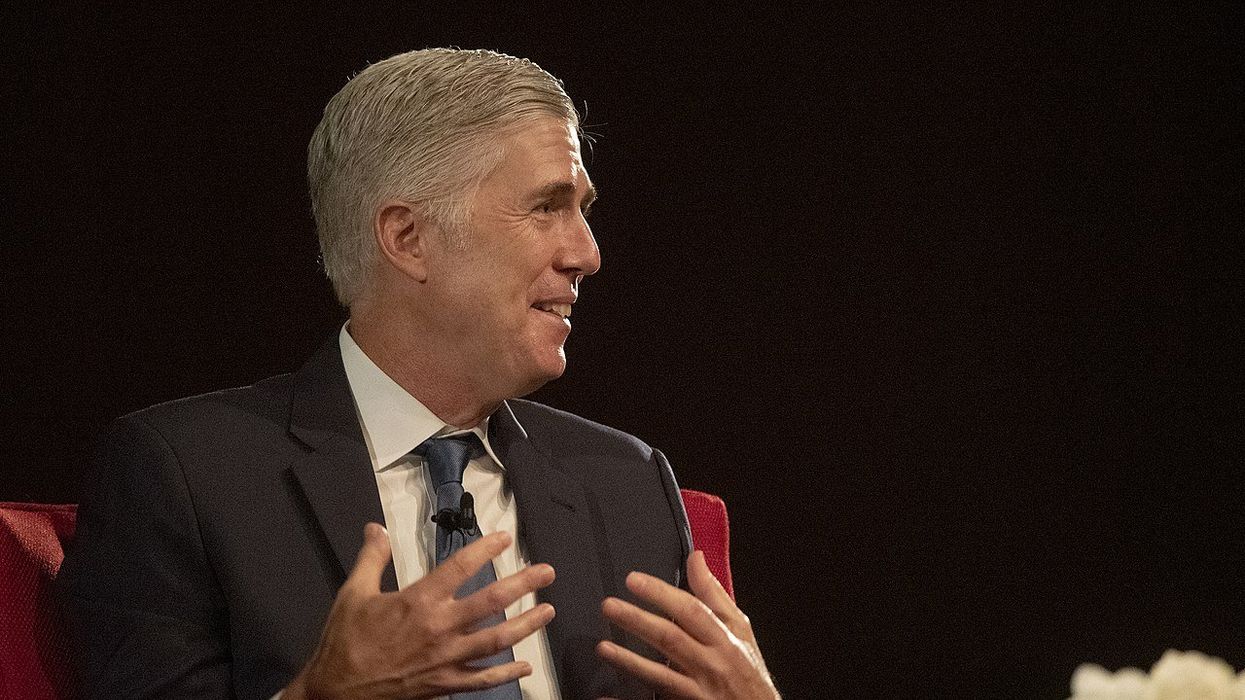'White-knuckle legal tussles' are pushing the Supreme Court 'front and center' in 2024 election

U.S. Supreme Court Justice Neil Gorsuch in 2019 (Creative Commons)
December 26, 2023 | 11:08AM ETBank
On Friday, December 22, the U.S. Supreme Court gave special counsel Jack Smith a very brief response to his request for an expedited review on former President Donald Trump's "immunity" claim in Smith's election interference case. The justices, without offering an explanation, simply let Smith know that his request had been denied.
This doesn't necessarily mean that the High Court will never address the matter — only that they are keeping it in the lower federal courts for now. Judge Tanya Chutkan has flatly rejected Trump's claim that he enjoys immunity from prosecution in Smith's case, ruling that presidents don't enjoy a "divine right of kings." But Trump's legal team has appealed Chutkan's decision, which has gone to a federal appeals court in Washington, D.C.
Meanwhile, in Anderson v. Griswold, Trump's lawyers are also appealing the Colorado Supreme Court's ruling that he is barred from the state's GOP presidential primary ballot under Section 3 of the U.S. Constitution's 14th Amendment, which disqualifies "officers" who have engaged in "insurrection."
POLL: Should Trump be allowed to hold office again?
In an article published on December 24, The Guardian's Ed Pilkington reports, "The confluence of two white-knuckle legal tussles, both involving Trump and both having potentially far-reaching implications for the November election, threatens to drag the Supreme Court to the front and center of the political fray. It comes at an awkward time for the Court, which is already reeling from its own internal ethical scandals and plummeting public approval ratings."
David Becker, executive director of the Center for Election Innovation and Research, is hoping the High Court will take up Anderson v. Griswold without delay.
Becker told The Guardian, "It's crucial for all Americans that the issue of Trump's eligibility be resolved as soon as possible. The Republican Party needs to know if it has a qualified nominee, election officials need to know who to name on the ballot, and the voters need to know who they can vote for."
Election law expert Rick Hasen, in a December 19 blog column, warned that political tensions in the U.S. are much worse than they were when the High Court issued its Bush v. Gore ruling in 2000.
"Unlike 2000," Hasen wrote, "the general political instability in the U.S. makes the situation now much more precarious. The political ramifications of disqualification would be enormous."
READ MORE: George Conway tears apart 'logically weak' dissents in Colorado Supreme Court’s Trump ruling
Although the U.S. Supreme Court is staying out of Trump's "immunity" claim — at least for now — legal experts aren't expecting the justices to stay out of the 2024 election altogether.
"To be shoved into the heart of the election battle is likely to be a deeply uncomfortable experience for all the justices, three of whom — Neil Gorsuch, Brett Kavanaugh and Amy Coney Barrett — were appointed by Trump," Pilkington explains. "The prospect is especially fraught for the chief justice, John Roberts, who is known to be sensitive about public opinion and keen to keep the court above the political ruckus. As the Colorado ruling was announced, Mike Sacks, a writer on law and politics, quipped on social media: "Did you all just hear John Roberts scream too because I def did."
READ MORE: Why the Supreme Court 'should resoundingly reject Trump's immunity bid'
Read The Guardian's full article at this link.